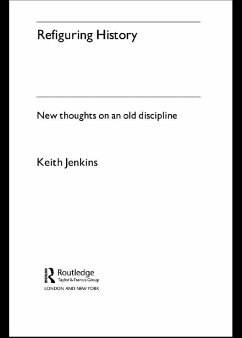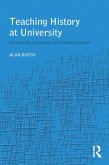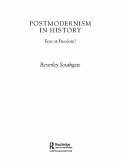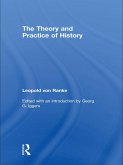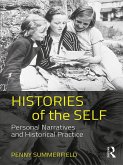Jenkins reassesses conventional history in a bold fashion. His committed and radical study presents new ways of 'thinking history', a new methodology and philosophy and their impact on historical practice.
This volume is written for students and teachers of history, illuminating and changing the core of their discipline.
Dieser Download kann aus rechtlichen Gründen nur mit Rechnungsadresse in A, B, BG, CY, CZ, D, DK, EW, E, FIN, F, GR, HR, H, IRL, I, LT, L, LR, M, NL, PL, P, R, S, SLO, SK ausgeliefert werden.
Hinweis: Dieser Artikel kann nur an eine deutsche Lieferadresse ausgeliefert werden.

